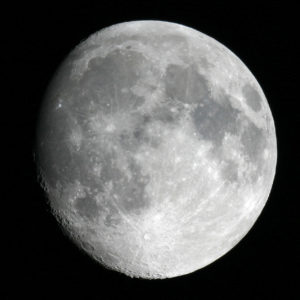
We are excited to present “The Moon Underfoot Again: Artemis vs. the Apollo Lunar Programs,” by Assistant Professor Bradley J. Thomson, a planetary geologist in the UT Department of Earth and Planetary Sciences.
Humans will be returning to set foot on the lunar surface soon. But where on the Moon are we going, and why? Professor Thomson will discuss how the Artemis program differs from the Apollo missions, and how the emerging role of the commercial space sector is transforming how NASA conducts its mission of exploration and science.
The event is free and open to the public, but registration is required.
About Professor Thomson
Professor Thomson’s work uses spacecraft observations and modeling to better understand the nature and timing of surface modification processes on terrestrial planets, and to better link orbital with surface observations. He has been a lead author, and co-author, on 39 peer-reviewed publications.
As a member of the science team for the lunar orbital radar instruments Mini-SAR and Mini-RF on the Chandrayaan-1 and the Lunar Reconnaissance Orbiter (LRO) spacecraft, respectively, Professor Thomson helped to design and execute observational campaigns for these instruments, and he also participated in the search for deposits of water ice in cold traps near the lunar poles using these data.
Professor Thomson has contributed to the selection process for the Mars Science Laboratory rover, and was one of many proponents for a landing site in Gale crater. His additional work on Mars focuses on understanding the potential role of water in shaping the surface geomorphology, and also understanding the connection between rock strength and weathering.
Professor Thomson current serves as vice-chair of MAPSIT, the NASA analysis group focusing on mapping and planetary spatial infrastructure; he is an elected officer of the Planetary Geology Division of the Geological Society of America; and he has participated on the NASA-chartered NEX‑SAG and Phobos/Diemos SKG advisory groups.
We are thrilled to have Professor Thomson join us at the Science Forum. He is an avid space enthusiast who frequently gives public outreach talks in order to make science more accessible to a broader audience, which has been the primary mission of the Science Forum since it was founded nearly 90 years ago.
About the Science Forum
Started in 1933, the UT Science Forum is one of the oldest UT organizations. Its purpose? To share the latest scientific research with the public.
Nearly 90 years later, the UT Science Forum provides an excellent opportunity for students, UT professors and the general public to learn about cutting-edge research at UT, ORNL, and other local facilities.
Join Us Friday Sept. 23 at Noon via Zoom
Join us Fridays at noon for an opportunity to discuss the latest scientific research with distinguished professors and researchers. Presentations are 40 minutes and designed for the general public. A question-and-answer session follows each presentation.
For the health and safety of our campus and Knoxville community, we will host all spring 2022 Science Forum lectures on Zoom. Visit the Zoom Help Center to learn more about setting up an account and joining a meeting.
